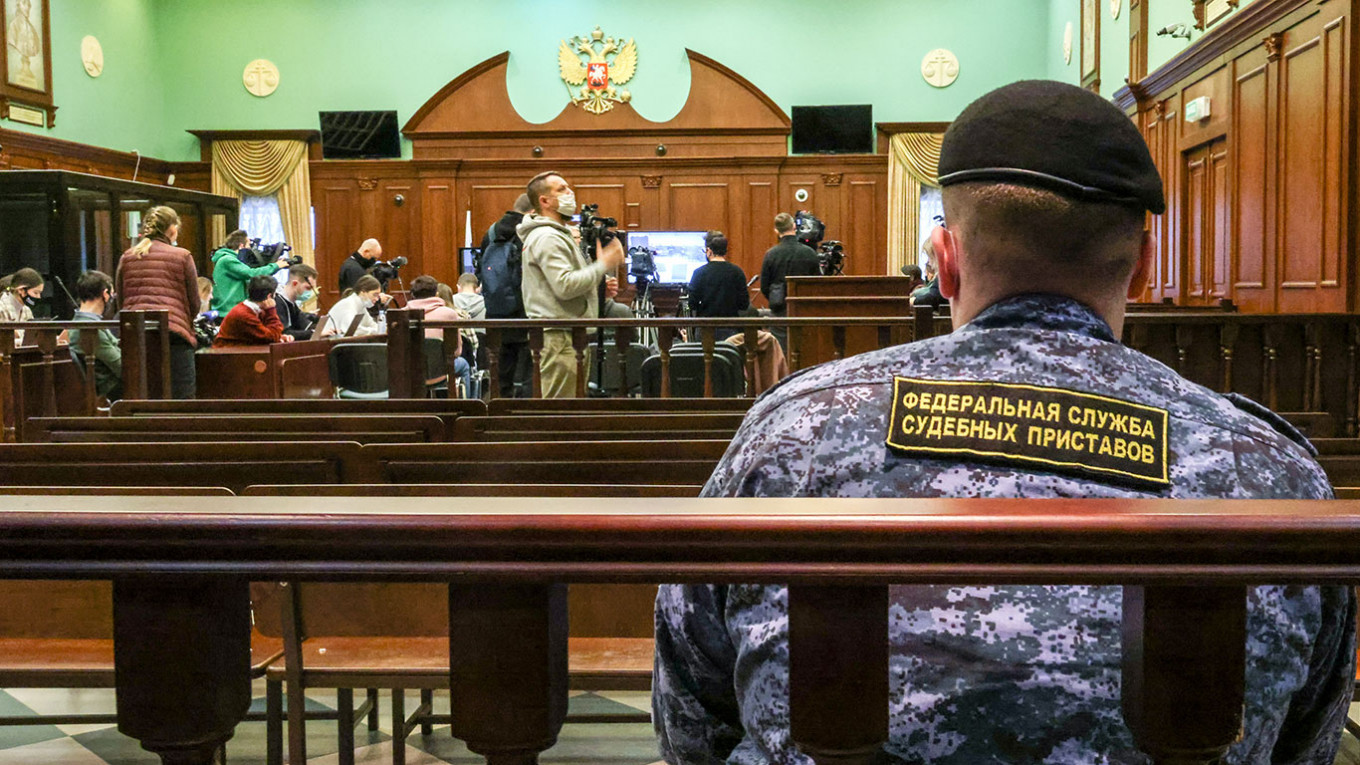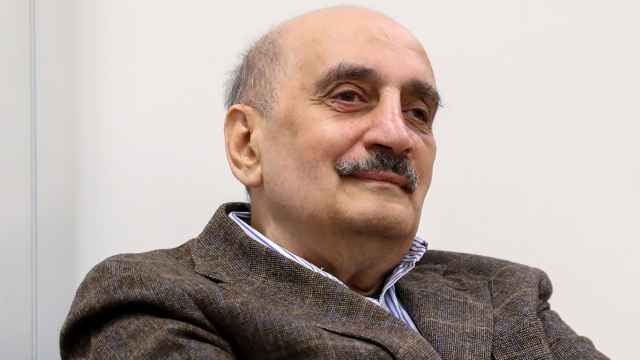A Russian court on Wednesday ordered a branch of the Memorial civil rights group that raises awareness toward contemporary rights abuses to shut down for repeated violations of the country’s controversial foreign agents law and allegedly justifying terrorism and extremism.
Judge Mikhail Kazakov of the Moscow City Court ordered the Memorial Human Rights Center’s dissolution a day after Memorial International — a closely connected group that investigated Soviet-era repressions — was shuttered by the Russian Supreme Court for repeated "foreign agent" law violations.
State prosecutors had also argued that the Memorial Human Rights Center’s support for the Jehovah’s Witnesses — a Christian religious group that is banned in Russia as “extremist” — placed them in breach of the country’s laws governing “extremist” groups.
Diplomats from Spain, Estonia, Lithuania, Finland, Sweden, Denmark, the United States and Germany were present at Wednesday's court hearing, according to the state-run TASS news agency.
Memorial's defense team plans to appeal the ruling to liquidate its human rights center, TASS quoted lawyer Maria Eismont as saying.
Memorial was founded by a group of former Soviet dissidents in 1989, during Mikhail Gorbachev’s perestroika reforms, to facilitate discussion of Soviet-era political repression and purges. At the time, it was seen as a sign of the U.S.S.R’s re-examination of painful chapters in its past.
But in recent years, the organization has fallen afoul of a Kremlin that has preferred to stress wartime heroism the achievements of the Soviet years, rather than dwell on repressions.
A souring national political atmosphere saw the Memorial Human Rights Center labeled a “foreign agent” in 2014, followed by Memorial International in 2016.
Memorial’s contemporary human rights work may have been partly responsible for drawing the Kremlin’s ire.
Last week, OVD-Info, a Memorial-linked project that provided legal support to those arrested at political protests, was blocked in Russia.
Like Memorial, OVD-Info had been labeled a “foreign agent” before a court ordered it blocked for providing support to “extremists.”
A Message from The Moscow Times:
Dear readers,
We are facing unprecedented challenges. Russia's Prosecutor General's Office has designated The Moscow Times as an "undesirable" organization, criminalizing our work and putting our staff at risk of prosecution. This follows our earlier unjust labeling as a "foreign agent."
These actions are direct attempts to silence independent journalism in Russia. The authorities claim our work "discredits the decisions of the Russian leadership." We see things differently: we strive to provide accurate, unbiased reporting on Russia.
We, the journalists of The Moscow Times, refuse to be silenced. But to continue our work, we need your help.
Your support, no matter how small, makes a world of difference. If you can, please support us monthly starting from just $2. It's quick to set up, and every contribution makes a significant impact.
By supporting The Moscow Times, you're defending open, independent journalism in the face of repression. Thank you for standing with us.
Remind me later.






